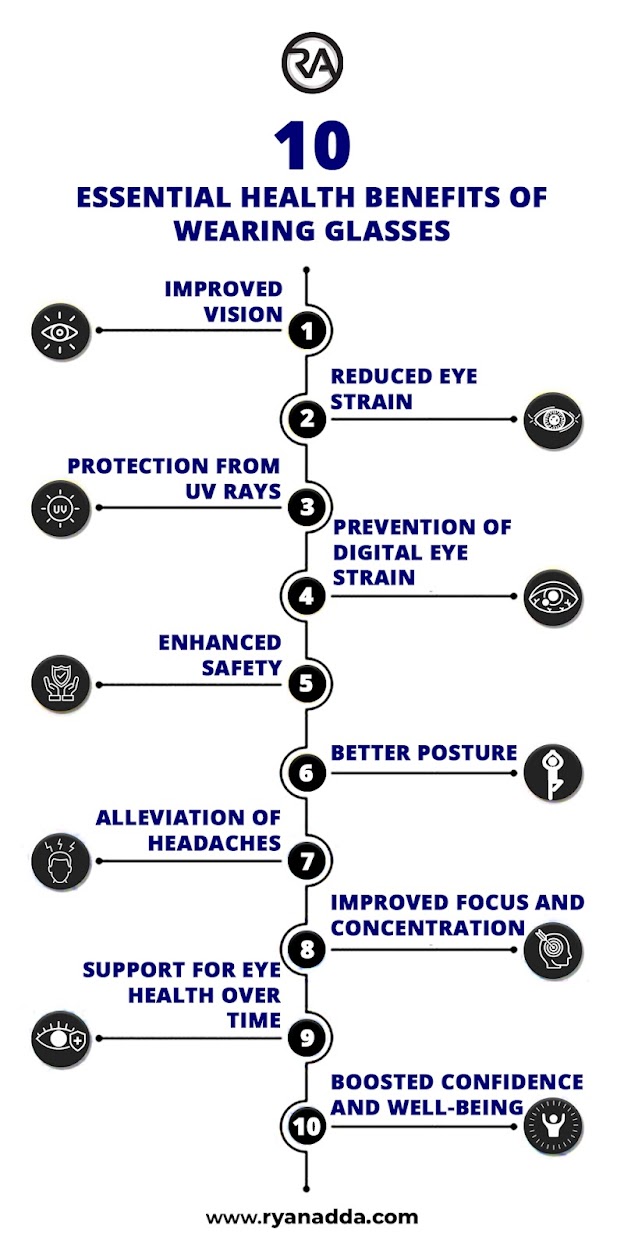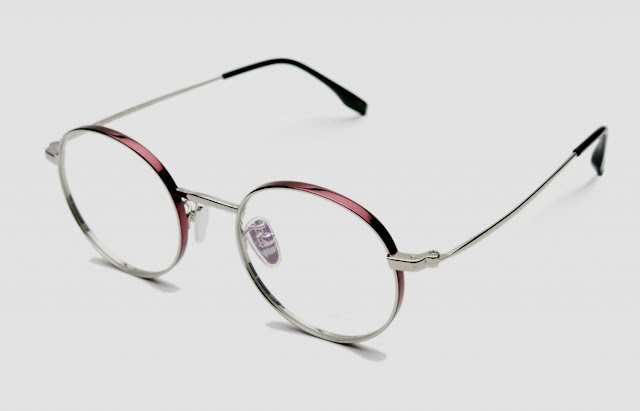Wearing glasses is often associated with improving vision, but the benefits extend far beyond just seeing clearly. Whether you're dealing with nearsightedness, farsightedness, or astigmatism, glasses play a crucial role in maintaining overall eye health and even contributing to your general well-being. Here are 10 essential health benefits of wearing glasses:
- Improved Vision
The most obvious benefit of wearing glasses is the correction of vision problems such as myopia (nearsightedness), hyperopia (farsightedness), astigmatism, and presbyopia (age-related difficulty in focusing on close objects). Glasses help you see clearly, reducing eye strain and improving your quality of life.
- Reduced Eye Strain
When your eyes struggle to focus without proper vision correction, it can lead to eye strain, headaches, and fatigue. Glasses reduce the effort your eyes need to exert to focus, minimizing discomfort and preventing long-term damage caused by overexertion.
- Protection from UV Rays
Many modern glasses come with UV protection, which shields your eyes from harmful ultraviolet rays. Prolonged exposure to UV rays can increase the risk of cataracts, macular degeneration, and other eye conditions. Glasses with UV protection act as a barrier, safeguarding your eyes from these risks.
- Prevention of Digital Eye Strain
In today’s digital age, many people spend hours staring at screens. This can lead to digital eye strain, characterized by dry eyes, blurred vision, and headaches. Glasses with blue light filters or anti-reflective coatings can help reduce the impact of screen time on your eyes, preventing strain and promoting eye comfort.
- Enhanced Safety
For individuals with significant vision impairments, glasses are essential for safety in daily activities like driving, walking, and working. Clear vision reduces the risk of accidents, ensuring you can navigate your environment confidently and safely.
- Better Posture
When you struggle to see clearly, you may unconsciously adopt poor posture, such as leaning forward or squinting to see objects or screens better. Over time, this can lead to neck and back pain. Glasses help you maintain proper posture by allowing you to see clearly without needing to adjust your body position.
- Alleviation of Headaches
Vision problems can often manifest as headaches, especially when your eyes are working overtime to focus. By correcting your vision, glasses can reduce or eliminate headaches caused by eye strain, improving your overall comfort and productivity.
- Improved Focus and Concentration
Clear vision is essential for tasks that require precision and focus, such as reading, writing, and working on a computer. Glasses help you maintain better concentration by ensuring your vision is sharp, reducing distractions caused by blurry or double vision.
- Support for Eye Health Over Time
Wearing glasses as prescribed can help prevent the progression of certain vision problems. For example, consistently wearing corrective lenses can slow down the worsening of myopia in some individuals. By supporting your eye health now, glasses contribute to better long-term vision outcomes.
- Boosted Confidence and Well-Being
Seeing clearly allows you to engage more fully with the world around you, which can boost your confidence and overall well-being. Whether you’re in a social situation or focusing on work, knowing that your vision is at its best can make a significant difference in how you feel and perform daily.
Wearing glasses offers a wide range of health benefits that go beyond improving vision. From reducing eye strain and preventing digital eye strain to protecting your eyes from UV rays and supporting overall eye health, glasses are an essential tool for maintaining your well-being. If you’ve been prescribed glasses, wearing them consistently is key to enjoying these benefits and ensuring your eyes stay healthy for years to come.





No comments:
Post a Comment